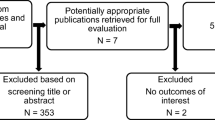Abstract
In the not so distant past, the idea of using beta-blockers as a primary therapy for congestive heart failure to improve symptoms and prognosis seemed paradoxical. The cardiac community reacted with skepticism when, in 1975, the pioneering report of Waagstein et al. appeared in the British Heart Journal. Since then numerous groups have investigated the effects of β-adrenoceptor antagonists in patients with congestive heart failure. Unfortunately, the results of these trials have sometimes contradicted one another.
Exercise tolerance and left ventricular ejection fraction improved in the trials with a duration of treatment of longer than 3 months, but no benefit was observed when beta-blockers were administered for only 1 month.
Now, in the year 2000 we have proof for the concept that beta-blockade improves symptoms and prolongs life in heart failure. Three large placebo-controlled clinical trials with more than 9000 patients have shown that carvedilol, bisoprolol and metoprolol significantly reduce morbidity and mortality in heart failure. These agents, therefore, are clearly indicated in the majority of patients with mild to moderate heart failure.
Similar content being viewed by others
Author information
Authors and Affiliations
Rights and permissions
About this article
Cite this article
Dietz, R., Osterziel, K., Willenbrock, R. et al. The background of the MERIT-HF trial. Basic Res Cardiol 95 (Suppl 1), I84–I89 (2000). https://doi.org/10.1007/s003950070015
Issue Date:
DOI: https://doi.org/10.1007/s003950070015




